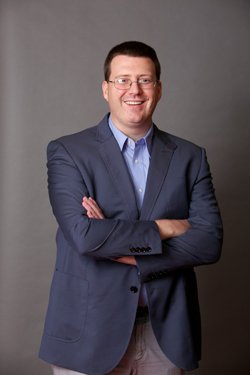Jason MacGurn
2013 Regional Award Finalist — Post-Doc

Current Position:
Assistant Professor of Cell & Developmental Biology
Institution:
Vanderbilt University (Previously at Cornell University)
Discipline:
Cell Biology

Current Position:
Assistant Professor of Cell & Developmental Biology
Institution:
Vanderbilt University (Previously at Cornell University)
Discipline:
Cell Biology
Recognized for: Research advancing our understanding of substrate selection for membrane trafficking and protein turnover pathways
Areas of Research Interest and Expertise: Cell biology, biochemistry
Biography:
PhD, Cell Biology, University of California, San Francisco
BS, Biological Sciences, University of Chicago
Jason MacGurn investigates the molecular mechanisms responsible for cell surface remodeling and their role in human disease progression. Eukaryotic cell surface remodeling is a process that relies on the targeted removal and degradation of plasma membrane proteins and controlled by ubiquitination, a post-translational modification. MacGurn has identified a novel ubiquitin ligase substrate targeting mechanism, elucidated a signaling mechanism for regulating cell surface remodeling, and characterized a quality control mechanism related to detection of misfolded integral plasma membrane proteins.
Dr. MacGurn recently started a lab at Vanderbilt University to study how ubiquitin modification of proteins regulates cell membrane trafficking, signaling pathways, and protein degradation using yeast and human cells. Ubiquitin ligases have been linked to various human diseases that result from defects in membrane protein turnover, including certain types of cancer and neurodegeneration. Both inside and outside the laboratory, MacGurn stresses the importance of science advocacy—reaching out to legislators at the state and federal levels.
“I think the most fascinating thing about cell biology is that when we understand the nuts and bolts well enough, we can begin to see design patterns that emerge throughout biology. And when we understand those design patterns, we can begin to engineer our own design patterns based on those that are capable of performing complex biological tasks.”
Key Publications:
Other Honors:
NIH Pathway to Independence Award (K99/R00), 2012
Sam and Nancy Fleming Research Fellowship, Weill Institute for Cell and Molecular Biology, 2008-2011